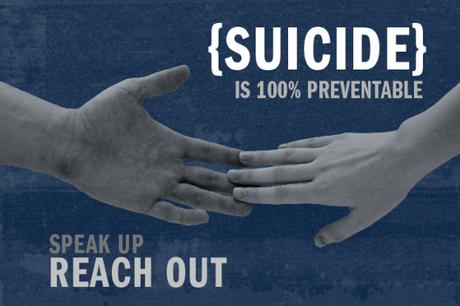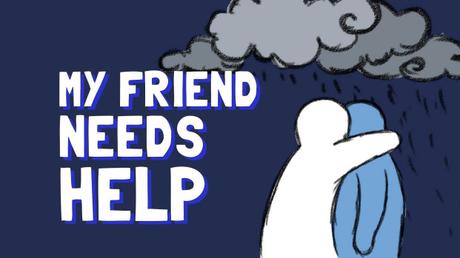
I’m going to be serious. I don’t like being serious, but this is a serious matter and one I feel very passionately about. September is Suicide Awareness Month. According to the American Association of Suicidology one person in the United States commits suicide every 13 minutes. It’s in the top 10 leading causes of death in this country. That’s NOT okay. And, it’s something no one wants to talk about. It’s not that people want to talk about other leading killers like cancer, but they’re easier to talk about. A disease of the body is something we can all understand, something we can quantify. A disease of the mind is more difficult for people who haven’t experienced it to relate to or empathize with. It’s also more difficult to combat, because it isn’t always easy to spot. It’s often hidden and silent. We as sufferers of auto-immune illnesses can understand that all too well. How many of you have gotten the “you don’t look sick” comment? My guess is that all of you have. But, did you know that celiac disease and major depressive disorder (or clinical depression) and anxiety disorders go hand in hand?
Major depressive disorder (symptoms are dramatic enough to interfere with daily life) or Persistent depressive disorder (depressed mood lasts for at least 2 years) is not just having a bad day. Symptoms include difficulty concentrating, disruption of appetite and sleep, loss of interest in daily activities, persistent sadness or feeling of emptiness, thoughts of suicide, etc. Depression effects 20-25% of Americans every year. That’s ¼ of the population. Although, it’s not technically fatal it can be. About 15% of clinically depressed people will die by suicide. Again, that’s NOT okay. Any illness with a 15% mortality rate needs immediate attention from all of us.
Studies have shown that depression and anxiety are prevalent in patients with celiac disease. Patients with celiac disease are 1.8 times more likely to suffer from depression than the general population. The Journal of Affective Disorders published a study that showed patients with a depression diagnoses are also 2.3 times more likely to be diagnosed with celiac disease. Although there is not a definitive reason for why this may be, researchers theorize that the malabsorption may be partially responsible in certain cases. For instance, people experiencing mood disorders like depression show low levels of vitamin b-12 and folate. Additionally, the chemical tryptophan is low in celiac patients and in those with depression. It could be that the compromised guts of those with celiac don’t allow them to absorb these nutrients and make us more susceptible to depression. It also could be the stress of living with a chronic illness. Or, it could be some other mechanism working in auto-immune disorders.
Ask yourself some questions. How has your energy been? Has your sleep been disrupted lately? Do you feel sad a lot? How are you energy levels? Do you no longer enjoy things that you used to? If you think that you may be suffering from depression please seek help. Your life is worth more than you know. And, treatment works. 80-90% of people with depression who seek treatment recover. Living with a chronic illness like celiac disease sucks and I know it’s hard. But, you can feel better. You can live a life of joy and peace.

If you or someone you know is in danger of committing suicide call 1-800-273—8255. This is the number to the National Suicide Helpline. However, they offer more than that. They can give you information for resources about counseling and getting help for a variety of issues you may be dealing with including coping with chronic illness. Know that you are not alone, even though you may feel that way. There are people out there who can and who want to help. The world is not as dark as it seems and there is another side to the pain.
Alicia is a super mom, wife, competitive athlete, and freelance writer. Find out more about her everyday adventures by liking her on Facebook.


